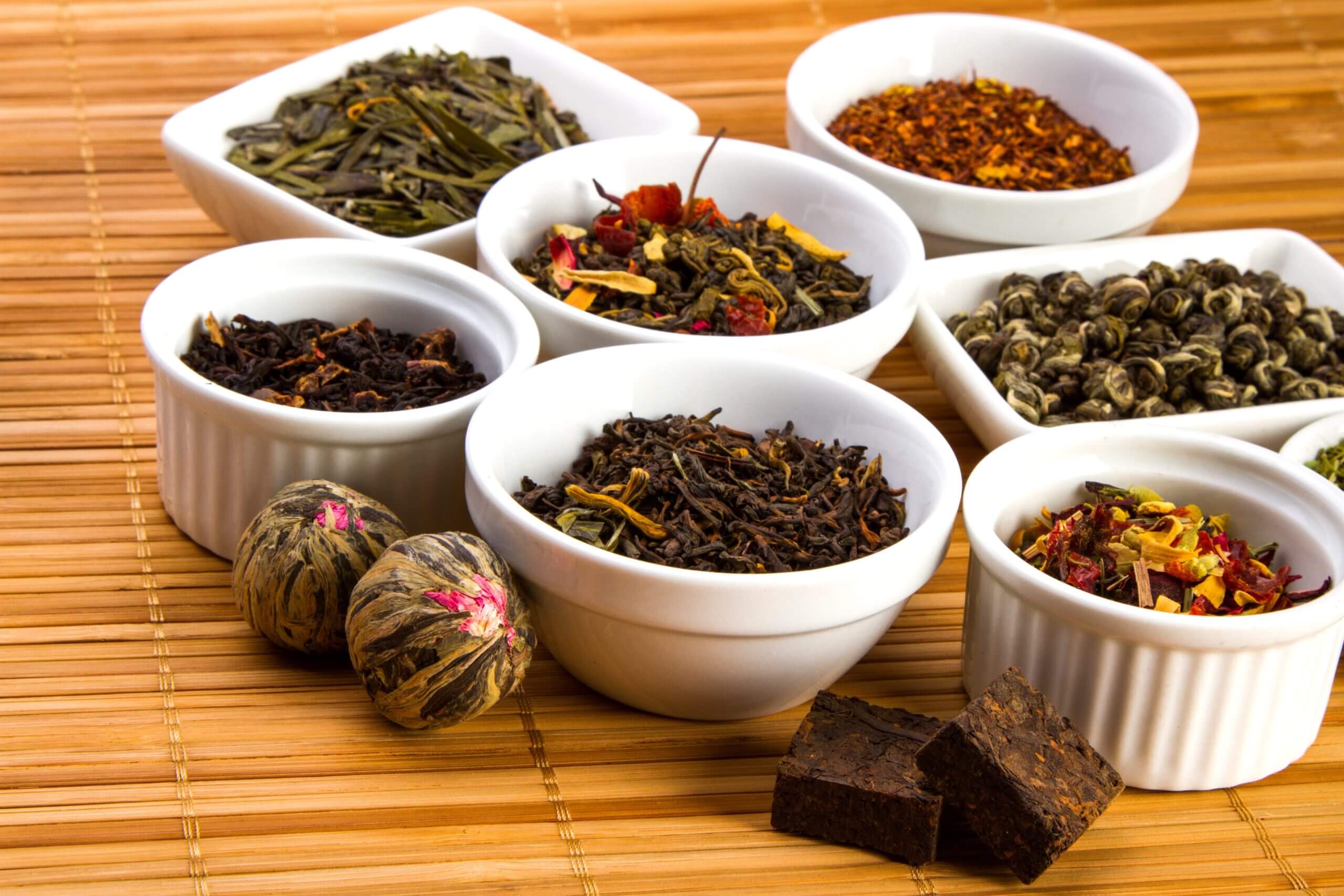
Tea is the most abundant liquid consumed after water world wild. Throughout the world green tea has been used as a health-enhancing drink for thousands of years. Green tea contains unique health-promoting components such as polyphenols particularly flavonoids (EGCG) and L-theanine. Like black tea, green tea is made from the dried leaves of the Camellia sinensis plant, native to Asia. Green tea differs from black tea because it is not fermented and therefore portions of active components remain undestroyed in green tea.
Antioxidants
Green tea contains compounds known as polyphenols, which have been shown to possess significant antioxidant activity ( Frei and Higdon, 2003; Tachibana et al.,2004). The major anti-inflammatory and antioxidative polyphenol present in green tea is epigallocatechin gallate or EGCG. Evidence has shown EGCG to be 200x more potent than vitamin E in protecting the brain which is especially susceptible to free radical damage and oxidative stress (Frei and Higdon, 2003) . In addition green tea not only protects but has also been shown to stimulate the regeneration of damaged cells and tissues (Herniquez et al. 2002, Vinson et al 1995).
Anti-obesity effects
A 2011 meta-analysis showed green tea has a significant positive effect on weight loss and on weight maintenance. Green tea was found to increase energy expenditure and fatty oxidation. Specifically, EGCG treatment significantly reduces body weight especially in those with central or abdominal obesity (Chen et al. 2015).. The postulated mechanism by which is is achieved is ECGC is shown to decrease the secretion of ghrelin and increases adiponectin leading to reduced appetite and increased fat breakdown.
Heart Health
The heart and stroke society estimates 1.3 million Canadians are living with heart disease and up to 80% of these cases are preventable by adopting a healthy lifestyle (Koon et. al 2015). In fact, by adopting healthy behaviours, you can delay the onset of heart disease or stroke by as much as 14 years! I cannot think of a better reason to start transitioning towards health NOW.
A recent 2016 meta-analysis looked at 259,267 individuals and the results without a doubt showed drinking 1-3 cups of green tea per day lowers your risk of developing CVD, intracerebral hemorrhage, cerebral infarction, myocardial infarction and stroke (Pang et al. 2016). In addition green tea consumption was associated with a lower total all cause mortality rate!
Protection from Xenobiotics
Our environment has become poisoned with indiscriminate usage of synthetic chemicals, and pesticides leading to contamination of land, air and water with xenobiotics. Exposure to these toxins has become unavoidable and results in severe health effects. Green tea through its defensive actions has the ability to potentially neutralize the damage caused by these agents. Evidence suggests the polyphenols in green tea scavenge free radicals and reactive oxygen species through their hepatoprotective effects .
Brain Health
Green tea contains L-theanine, a derivative of glutamate, which has been shown to cross the blood-brain barrier and reduce stress by inhibiting cortical neural excitation and influencing the secretion of neurotransmitters in the brain. Specifically L-theanine increased the alpha-band frequency in the brain which indicates the mind is relaxed (Kakuda et. al 2000). However the caffeine content mitigates the sedative effects resulting in you being alert, focus but not drowsy.
The component EGCG has been scientifically shown to possess anti-inflammatory effects in the human brain. EGCG attenuates the inflammatory response and the results researchers provide possibility for its therapeutic application to neurodegenerative diseases such as Cognitive Decline, Alzheimer’s and Parkinson’s Disease (Kim et. al 2007, Weinreb et al 2004).
References
Teo, Koon et al. “Prevalence Of A Healthy Lifestyle Among Individuals With Cardiovascular Disease In High-, Middle- And Low-Income Countries”. JAMA 309.15 (2013): 1613. Web.
Canadian Stroke Network 2011.The quality of stroke care in Canada.
Hursel, R. et al. “The Effects Of Catechin Rich Teas And Caffeine On Energy Expenditure And Fat Oxidation: A Meta-Analysis”. Obesity Reviews 12.7 (2011): e573-e581. Web.
Chen, I-Ju et al. “Therapeutic Effect Of High-Dose Green Tea Extract On Weight Reduction: A Randomized, Double-Blind, Placebo-Controlled Clinical Trial”. Clinical Nutrition (2015): n. pag. Web.
Higdon, JV; Frei, B. Tea catechins and polyphenols: health effects, metabolism, and antioxidant functions. Critical Reviews in Food Science and Nutrition, 2003,43,89–43.
Pang, Jun et al. “Green Tea Consumption And Risk Of Cardiovascular And Ischemic Related Diseases: A Meta-Analysis”. International Journal of Cardiology 202 (2016): 967-974. Web.
Frei, B. & Higdon, J.V. (2003). Antioxidant activity of tea polyphenols in vivo: evidence from animal studies. J. Nutr., 133.
Kakuda, T., Nozawa, A., Unno, T., Okamura, N. & Okai, O. (2000a). Inhibiting effects of theanine on caffeine stimulation evaluated by EEG in the rat. Biosci. Biotechnol. Biochem., 64, 287-293.
Tachibana, H., Koga, K., Fujimura, Y. & Yamada, K. (2004). A receptor for green tea polyphenol EGCG. Nat. Struct. Mol. Biol., 11, 380-381.
Chen C, Shen G, Hebbar V, Hu R, Owuor ED, Kong AN. Epigallocatechin-3-gallate-induced stress signals in HT-29 human colon adenocarcinoma cells.Carcinogenesis2003 Aug;24(8):1369-78.
Kim, S.J., Jeong, H.J., Lee, K.M., Myung, N.Y., An, N.H., Yang, W.M., Park, S.K., Lee, H.J., Hong, S.H., Kim, H.M. & Um, J.Y. (2007). Epigallocatechin-3-gallate suppresses NF-kappaB activation and phosphorylation of p38 MAPK and JNK in human astrocytoma U373MG cells. J. Nutr. Biochem., 18, 587-596.
Vinson, J; Dabbagh, Y; Serry, M; Jang, J. Plant flavonoids, especially tea flovanols, are powerful antioxidants using in vitro oxidation model for heart disease. Journal of Agricultural and Food Chemistry, 1995,43,2800-2802.
Henriquez, C; Aliaga, C; Lissi, E. Formation and decay of the ABTS derived radical cation: A comparison of different preparation procedures. International Journal of Chemical Kinetics, 2002,34,659-665.
Weinreb, Orly et al. “Neurological Mechanisms Of Green Tea Polyphenols In Alzheimer’s And Parkinson’s Diseases”. The Journal of Nutritional Biochemistry 15.9 (2004): 506-516. Web.
 By Breanne Kallonen
By Breanne Kallonen February 23, 2016
February 23, 2016